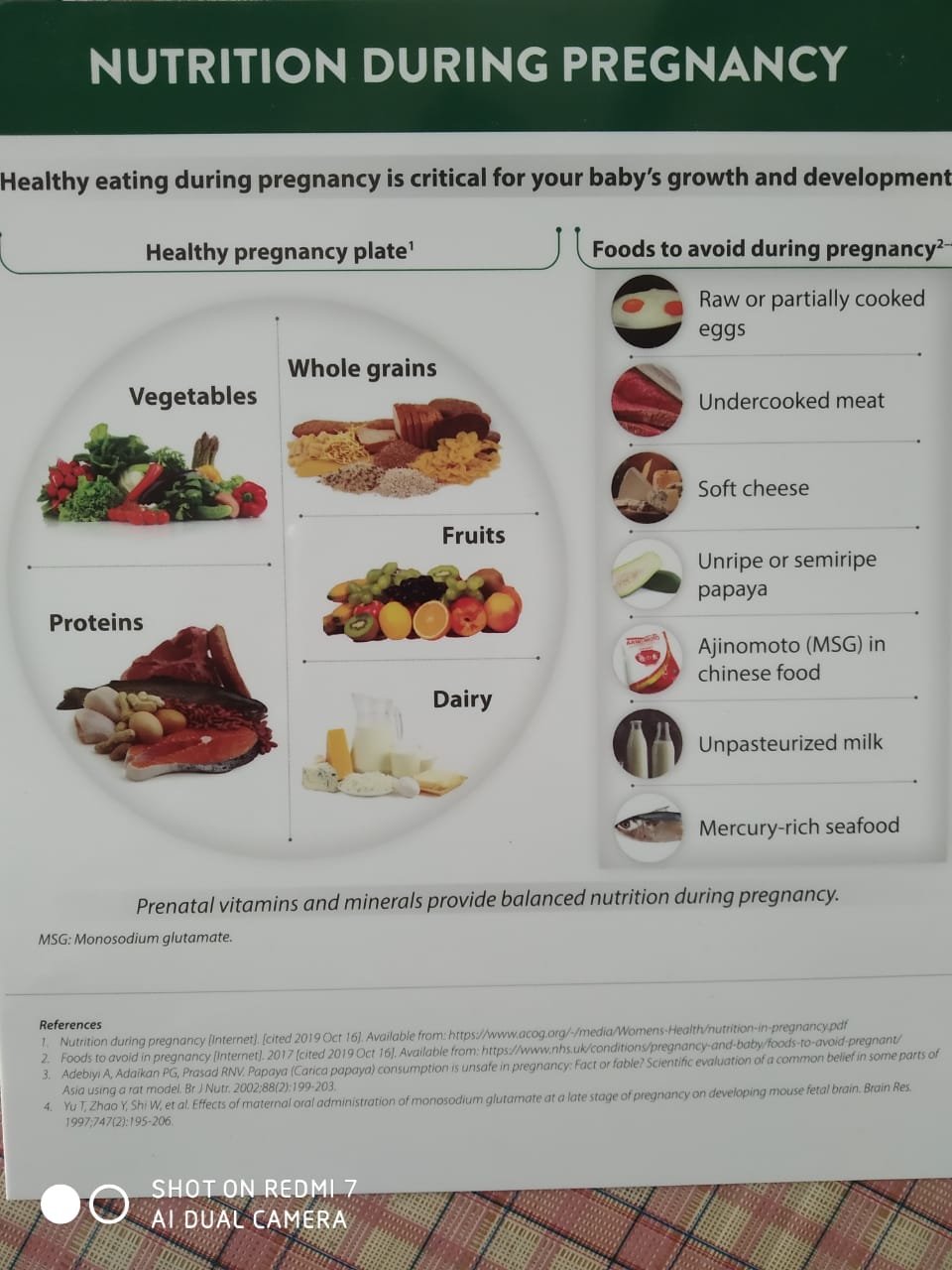
.jpeg)
.jpeg)

Pregnancy Care
Getting good care before, during, and after your pregnancy is very important. It can help your baby grow and develop and keep you both healthy. It is the best way to be sure your little one gets a head start on a healthy life.
PRENATAL CARE :
Good prenatal care includes good nutrition and health habits before and during pregnancy. Ideally, you should talk with your health care provider before you start trying to become pregnant. Here are some things you will need to do:
Choose a provider: You will want to choose a provider for your pregnancy and childbirth. This provider will provide prenatal care, delivery, and postpartum services.
Take folic acid: If you are considering becoming pregnant, or are pregnant, you should take a supplement with at least 400 micrograms (0.4 mg) of folic acid every day. Taking folic acid will decrease the risk for certain birth defects. Prenatal vitamins almost always contain more than 400 micrograms (0.4 mg) of folic acid per capsule or tablet.
You should also:
Go for prenatal visits and tests: You will visit many times during your pregnancy for prenatal care. The number of visits and types of exams you receive will change, depending on where you are in your pregnancy:
Talk with your doctor about the different tests you may receive during your pregnancy. These tests can help your provider see how your baby is developing and if there are any problems with your pregnancy. These tests may include:
Depending on your family history, you may choose to screen for genetic problems. There are many things to think about before doing genetic testing. Doctor can help you decide if this is right for you.
If you have a high-risk pregnancy, you may need to see your doctor more often and have additional tests.
